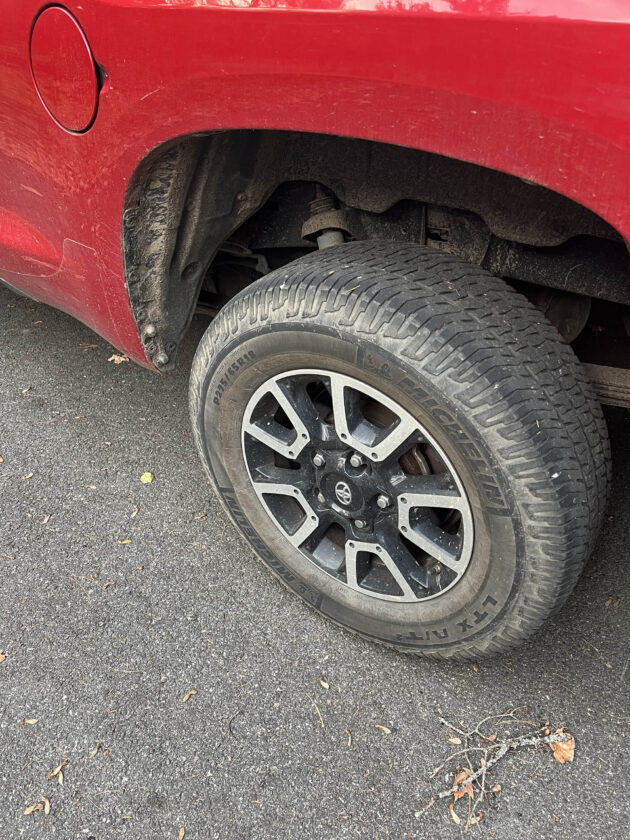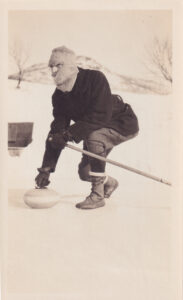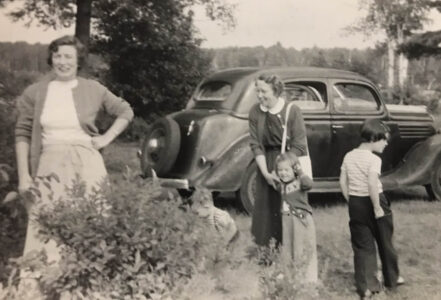Retorquing

Retorquing lug nuts after a tire is taken off is standard practice. (Provided photo — Diane Chase)
Recently, I’ve heard of two separate incidents where a wheel had fallen off after having a tire changed. There may have been other issues at hand, but both people mentioned the need to have the lug nuts on the tires retorqued after a tire is removed and put back on. What? I’ve been driving for a million years now, and I have never had that done. Or so I thought.
It turns out my husband has been checking the tire bolts after I’ve taken my car for service. That means that I got lucky all the other years I was driving all over the country. I don’t mind taking some chances, but having a tire fall off isn’t something I want to cross off my bingo card. Since my children and I aren’t mechanically inclined, I want to make sure we understand basic safety. If you didn’t already know this fact, I am happy I can pass along some pertinent information.
I recently had a slow leak in one tire. While at the shop, I asked the attendant about the need to have my tire’s lug nuts retorqued. It turns out that not only is it true, but it’s also on the receipt I received after the service. Any time a tire is taken off, for repair, rotation or any reason, the lug nuts should be checked and tightened after 50 miles of driving. It is part of the service; bring the car back for the mechanics to double-check the wheel. Now I understand that I have never known to retorque the lug nuts, and I’ve ignored the small print while I signing service receipts. So many lessons to learn.
Since I ask everyone I know for advice, one person suggested that the reason retorquing is standard practice may be the use of different materials and vehicle use. Some tire rims use aluminum alloy, while others use steel. The different materials interact with the tire in different ways, requiring the retightening of the lug nuts. In the 1920s, luxury cars, such as Porsche and Bugatti, began using aluminum to make the tires lighter and faster. Aluminum’s ability to dissipate heat also improves braking performance. Steel rims are better for heavy machinery such as off-road cars, winter tires, trucks and commercial vehicles.
As always, any questions regarding car maintenance and vehicle safety needs to be addressed directly with your mechanic, not me. Though I will gladly take your complaints, I can’t answer any mechanical questions. I’m onto a new project. I’m figuring out why my toaster/convection oven has a mind of its own. Retorque and be safe.


